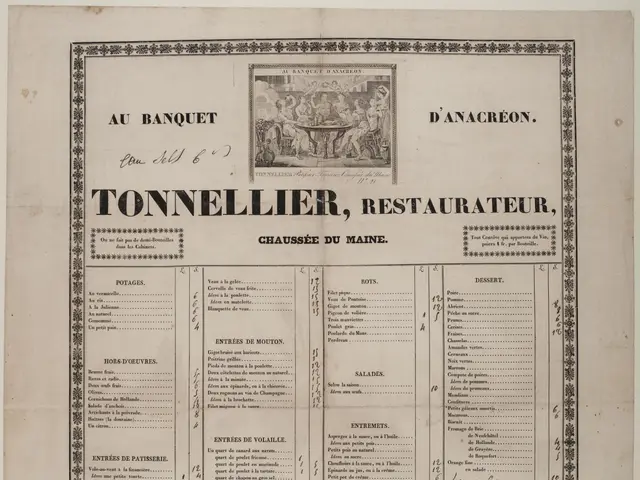Rapid and Sluggish Housing Markets Across Britain, Landlords Facing a £23bn Expense, and the heated Dispute over Interest Rates
The UK housing market is currently experiencing a mix of fast-paced and slow-moving markets, with some interesting developments and trends emerging.
Chain-Free Homes Dominate Sales
A third of homes for sale on Zoopla are listed as "chain-free," indicating that landlords and second home owners are actively trying to sell. This could be a sign of a growing trend as homeowners look to offload properties and take advantage of the current market conditions.
Scotland Leads the Fastest Markets
Scotland is home to all 10 of the fastest-moving housing markets in Britain, with properties taking an average of 33 days to find a buyer. Cities like Giffnock and Uddingston, both commuting distance to central Glasgow, are among the fastest markets. The town of Carluke in Lanarkshire has the fastest market, with sellers finding a buyer in just over two weeks (15 days).
London Market Slows Down
On the other hand, house prices in prime central London fell by 0.7% over the last three months, as reported by Savills. Concerns about potential tax changes in the Autumn Budget are affecting the London housing market, according to Zoopla and Savills.
Mortgage Rates at 15-Month Low
Despite the slowdown in London, the mortgage rates have reached the lowest levels in 15 months, according to Zoopla and Nationwide. This could encourage more buyers to enter the market, potentially boosting sales in other areas of the country.
Energy Efficiency Standards Impacting Landlords
Landlords may face a £23.4bn bill to meet proposed Energy Performance Certificate (EPC) standards, according to a recent report. The government plans to raise minimum energy efficiency standards in the rental sector, which could lead to significant renovation costs for landlords.
Regional Differences in Market Conditions
In Scotland, ten of the fastest housing markets took on average only 33 days to sell because of higher demand, possibly less inventory, and local market dynamics, compared to 60 days on average across Great Britain. Most of Britain's slowest markets are near the coast, with sellers in Brixham in Devon, Skegness in Lincolnshire, and Sandown in the Isle of Wight taking between 109 and 118 days to find a buyer.
Green Wealth Divide in EPC Ratings
Rightmove's analysis of EPCs from the past year shows a 'green wealth divide', with 50% of £1m-plus properties improving their rating significantly, compared to 32% of properties under £400,000. This suggests that wealthier homeowners are more likely to invest in energy-efficient improvements.
Bank of England's Interest Rate Outlook
The Bank of England's chief economist, Huw Pill, stated that they are determined not to move interest rates "too far or too fast." However, former Bank of England governor Andrew Bailey suggested that "more aggressive" interest cuts should be considered in the UK.
Growing Inventory and Buyer Appetite
Zoopla's data shows that the volume of sales agreed and buyer appetite in September are both up by more than a quarter compared to the same time last year. With a fifth of properties having been on the market at some point in the last two years, it seems that the number of homes for sale is growing.
In conclusion, the UK housing market is showing a mix of fast-paced and slow-moving markets, with Scotland leading the way in speedy sales. The London market is experiencing a slowdown due to potential tax changes, while mortgage rates are at their lowest in 15 months. Energy efficiency standards and costs are impacting landlords, and there's a clear 'green wealth divide' in EPC ratings. The Bank of England is cautious about interest rate changes, and the housing market inventory and buyer appetite are on the rise.







